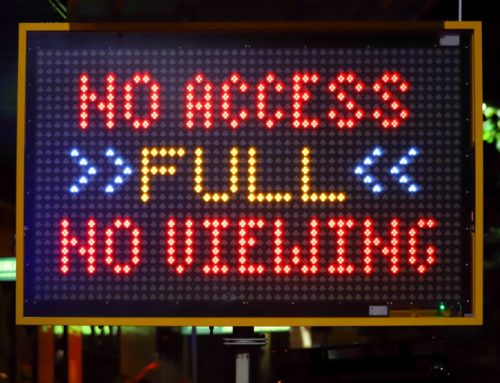
Antionette Kerr is back with us today for another post in the series we are calling “Inclusive Conversations.” It’s all about cultural competency and how communications staff can not only be more inclusive and therefore effective in their communications work products, but also lead these conversations within their own nonprofits. Stay tuned for much more in 2018! Today, let’s talk about those Christmas appeals . . .
~Kivi
Guest Post by Antionette Kerr
Is your end-of-the-year appeal inclusive?
During my tenure as a nonprofit executive director of a housing agency, I’ve participated in a host of trainings related to diversity and “cultural competence.”
Some of the comments I hear most often are “I didn’t mean to offend anyone” or “I didn’t think about it that way.”
So, it will come as a surprise to some that despite having in-depth insight on the importance of inclusive language surrounding issues of race, ethnicity and sexual orientation, I found myself making the same excuses.
The Rub
For more than a year, Ken Lack was a volunteer, donor and friend to me and the agency but it wasn’t until he shared a newspaper guest column about being Jewish around the holiday in my small southern town that I thought about all those years of appeal letters wishing him a Merry Christmas.
It wasn’t until I read Ken’s newspaper column, Imaginary Times in Lexington, that invited readers to consider his perspective. He gave it to me to read before submission, and I wrote back to him immediately to ask if I could share his story…
“Imagine as you drive down Main Street, not a single store has Christmas decorations. Instead, each has a menorah in their windows in observance of Chanukah. A giant menorah replaces the Christmas tree located at our city square. Any lights that are placed in public areas are comprised of blue and white, symbolizing the Israeli flag. It looks very nice, but unfamiliar.”
Ken goes on to say…
“You go into the local supermarket to shop for the holiday meal. Gone are the hams with all the trimmings. Instead, there are displays for products to make potato pancakes and matzoh ball soup. You can select from an abundance of different lamb shanks, horseradish and gefilte fish. If you want to cook a Christmas ham, you will have to drive to Winston-Salem in order to buy one.”
I know the importance of intentional agency communication. In the housing world, we learn about discriminatory and inclusive language related to “protected classes” in fair housing. Failure in this area can have serious consequences if it violates standards for the seven protected classes under the Federal Fair Housing Act.
- Race
- Color
- Religion
- Sex
- National Origin
- Disability (added in 1988)
- Familial Status (having children under 18 in a household, including pregnant women) (added in 1988)
*Some states have added protections for sexual orientation.
HUD provides intense training on avoiding “discriminatory language” like “predominantly-Jewish neighborhood” and “near local churches.”
My Confession
In my role as an ED, I took extra steps to challenge staff to create marketing materials that included people from varied perspectives.
And with all that being said . . . I was guilty year after year of writing appeals that weren’t considerate to one of our agency’s biggest supporters.
I asked Ken, “Why didn’t you say anything?” Of course, he assured me it was no big deal because I am his friend, but here is what he wrote to the rest of the world:
“The majority of our residents celebrate Christmas, so bring on those decorations up and down the streets. Everyone agrees that they provide beauty and holiday spirit. But perhaps if we see some businesses setting up small acknowledgments of other holidays occurring at the same time, at best it could make a child smile seeing an acknowledgment of the holiday they were raised to celebrate. At worst, it exposes us to other cultures and traditions. Maybe our supermarkets could carry some traditional holiday foods for all the celebrants during the season. Think about an act such as saying, ‘Happy Holidays’ rather than ‘Merry Christmas’ to people you don’t know. It may allow some to feel more like they are part of the joyous holiday celebration as well.”
So Where Do We Go from Here?
Stop Making Excuses. Ignorance of the offense doesn’t give any of us a pass. An apology will go a long way. “I didn’t mean to offend anyone” or “I didn’t think about it that way” should be the beginning of your simply saying “I am sorry!”
Imagine Yourself in Someone Else’s Shoes. This could be effective in getting others in the agency to understand the rub. Ken’s column was powerful, but it’s not a new strategy. When I was in college, we were having a debate about “privilege” when my professor decided we should watch White Man’s Burden. The 1995 film with Harry Belafonte and John Travolta flips the script in an America where African-Americans are the ruling class majority. Ken used a similar method to show the “privilege” of being in the majority faith in our community.
Be Open for Future Conversations. These conversations should be safe spaces that include a host of voices. A Point of View: Fostering Inclusive Conversations advises: “The key to commencing a meaningful and constructive dialogue is trust and trust can take a long time to establish. We cannot assume that we can jump into authentic conversations with those who are different from us. We have to consider where each might be as it relates to trust. What does trust really mean?” They include elements of a trusting relationship I think are important. If you are thinking about facilitating a conversation, check this out.
Are we saying you shouldn’t say “Merry Christmas” in your year-end appeal?
Not exactly.
That’s a complicated question that only your agency can answer! The purpose of this post is to challenge people (even those who think they have it all figured out) to think inclusively.
So, Ken’s response was this…
“No one is asking that anyone change their ways but rather to broaden them so that we can become an even friendlier and stronger community. As a former United States president once said, ‘We are a nation of communities … a brilliant diversity spread like stars, like a thousand points of light in a broad and peaceful sky.’”
Happy Holidays!
Stay tuned for more on the topic of Inclusive Conversations.





